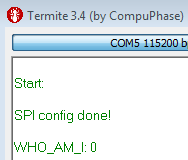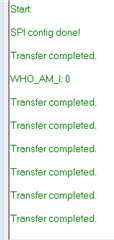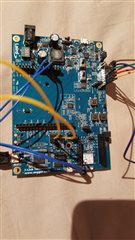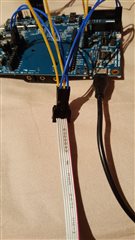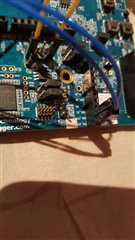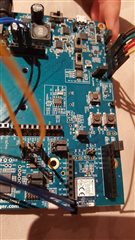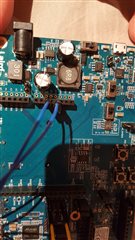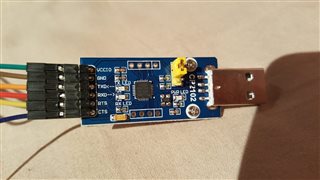Hey guys (and merry Christmas),
I'm working with a Laird BL652-DVK (nrF 52832 - chip), Nordic SDK v.14.2.0 and SES (Segger Embedded Studio v.4.30). I try to receive data from an accelerometer using spi. At first I configured the uart example because I want to send the data to my pc with uart and Termite v3.4. That's working.
Now I have implented the spi example into the uart example. I have configured spi and the accelerometer. After that I read the WHO_AM_I register (uint8_t read_data_1), but I get a wrong value. I get the value "11" instead of "33".... My code is below. If I read the "uint8_t read_data[1]" (commented out), I get the value "0x0". I really don't know, what to do. I hope someone can help me.
My code:
Here I get the value "0x11" instead of "0x33":
And here I get the value "0x0" instead of "0x33":
Thanks in advance,
Christoph



